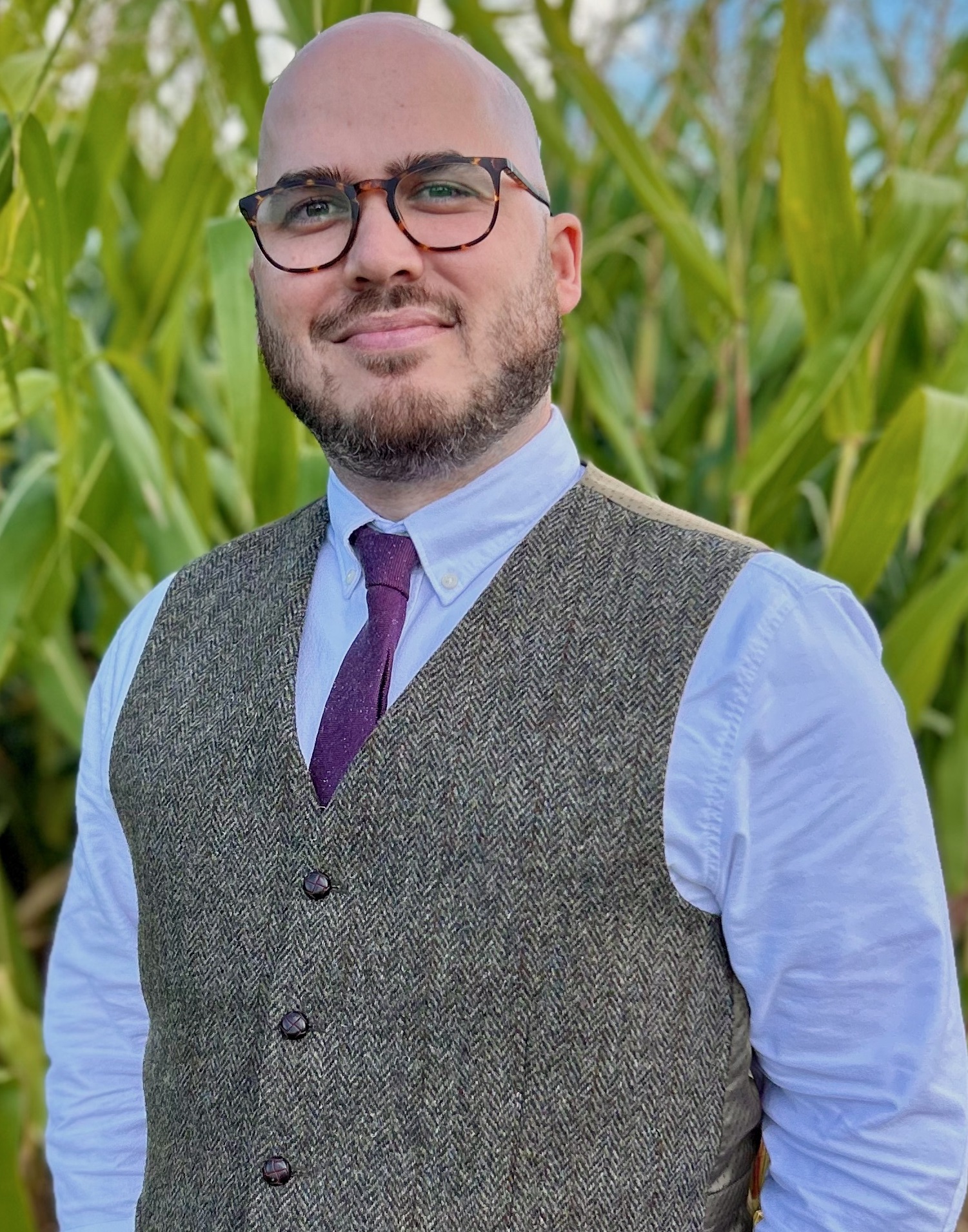
Wesley Tourangeau, PhD, MA, BA
Assistant Professor
Office: CHS 157-2
Email: Wesley.Tourangeau@uwindsor.ca
Telephone: 519-253-3000 ext. 3497
Research and Teaching Areas:
Dr. Tourangeau researches systems of regulation, discourse, and practice that influence interactions between humans, non-human animals, and the natural environment. Grounded within green criminology, critical criminology, socio-ecological sustainability, and systems thinking, his research explores animal and environmental harms, agricultural policies and regulations, the intersection of agriculture and climate change, and relations of power and influence across these topics. His teaching areas are informed by these research interests, and include crimes of the powerful, social harm/zemiology, green criminology, and qualitative methods. Dr. Tourangeau’s work is published in a range of impactful national and international journals, such as Critical Criminology, Geoforum, the Journal of Rural Studies, and the Canadian Journal of Criminology and Criminal Justice.
Recent Courses: Taught
- Current Issues in Criminology
- Advanced Seminar in Criminology
Education:
- PhD, University of Waterloo
- MA, University of Windsor
- BA, University of Windsor
Recent and Key Publications:
Journal Articles:
- Tourangeau, W. (2022). A systems-based approach to green criminology. Critical Criminology, 74, 22-33.
- Tourangeau, W. & Scott, C. (2022). Critical reflections on ‘humane’ meat and plant-based meat ‘alternatives’. Canadian Food Studies, 9(1), 170-195.
- Rahman, H.M.T., Albizua, A., Soubry, B., & Tourangeau, W. (2021). A framework for using autonomous adaptation as a leverage point in sustainable climate adaptation. Climate Risk Management, 34, 100376.
- Tourangeau, W. & Sherren, K. (2021). Why is grazing management being overlooked in climate adaptation policy? Agroecology and Sustainable Food Systems, 45(6), 843-867.
- Tourangeau, W., Lamarque, M., & Greenland-Smith, S., & Sherren, K. (2021). Beyond intrinsic: A call to combine scales on motivation and environmental values in wildlife and farmland conservation research. Human Dimensions of Wildlife: An International Journal, 26(4), 375-389.
- Tourangeau, W. & Sherren, K. (2020). Leverage points for sustainable wool production in the Falkland Islands. Journal of Rural Studies, 74, 22-33.
- Tourangeau, W. & Sherren, K. (2020). Leverage points for sustainable wool production in the Falkland Islands. Journal of Rural Studies, 74, 22-33.
Sherren, K., Tourangeau, W., Lamarque, M., & Greenland-Smith, S. (2020). Exploring motivation crowding and contagion after incentives for riparian management in Nova Scotia, Canada. The Canadian Geographer, 64(2), 250-265. - Tourangeau, W., Sherren, K., & Delignières, M. (2019). “We secured the tussac”: Ecological exploitation and regeneration in the Falkland Islands. People and Nature, 1(4), 548-561.
- Tourangeau, W., Sherren, K., Kent, C., MacDonald, B. (2019). Of climate and weather: Examining Canadian farm and livestock organization discourses from 2010 to 2015. Weather, Climate, and Society, 11, 95–111
- Tourangeau, W. (2018). Power, discourse, and news media: Examining Canada’s GM alfalfa protests. Geoforum, 91, 117-126.
- Tourangeau, W. (2017). GMO doublespeak: An analysis of power and discourse in Canadian debates over genetically modified foods. Canadian Food Studies, 4(1), 108-138.
- Tourangeau, W. (2017). Debating Bill C-18: An analysis of power and discourse in parliamentary proceedings on Canada’s Agricultural Growth Act. Journal of Canadian Studies, 51(2), 485-519.
- Tourangeau, W. & Smith, C. (2015). The valorization of GMOs and the de-valorization of farmers’ contributions to biodiversity—Synthesis paper. Canadian Food Studies, 2(2), 217-222.
- Tourangeau, W. (2015). Re-defining environmental harms: Green criminology and the state of Canada’s hemp industry. Canadian Journal of Criminology and Criminal Justice, 57(4), 528-554
Book Chapters:
- Tourangeau, W. (2022). Criminalizing environmentally beneficial activities: Hemp and Canada’s Cannabis Act. In J. Gacek and R. Jochelson’s (Eds.) Green Criminology and the Law, pp. 173-195 Palgrave.
- Tourangeau, W. & Fitzgerald, A. (2020). Food crime and green criminology. In N. South and A. Brisman (Eds.), Routledge International Handbook of Green Criminology, 2nd Edition. Routledge.
- Fitzgerald, A, & Tourangeau, W. (2018). Crime versus harm in the transportation of animals: A closer look at Ontario’s “pig trial”. In A. Gray and R. Hinch (Eds.), A Handbook of Food Crime: Immoral and Illegal Practices in the Food Industry and What to Do about Them. Policy Press.
- Tourangeau, W. (2016). Criminology, food, and agriculture. In P.B. Thompson and D.M. Kaplan (Eds.), Encyclopedia of Food and Agricultural Ethics.
Public Scholarship:
- Tourangeau, W. (2019). Sustainable stepping stones. Ecology & Action, 37(2), 7-9. Ecology Action Centre: Halifax, Nova Scotia. (Magazine article)
- Tourangeau, W. (2018). A crime of convenience. Ecology & Action, 36(3), 4-5. Ecology Action Centre: Halifax, Nova Scotia. (Magazine article)
- Tourangeau, W. (2018). Moving beyond Meatless Mondays. Ecology & Action, 36(2), 2-3. Ecology Action Centre: Halifax, Nova Scotia. (Magazine article)
- Tourangeau, W. (2013). Drawing lines in the soil. Review of the book “Growing Resistance: Canadian Farms and the Politics of Genetically Modified Wheat”, by Emily Eaton. Alternatives Journal, 39.5. (Magazine article)
